Resources
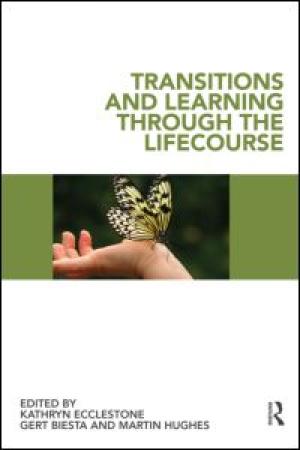
Like many ideas that inform policy, practice and research, ‘transition’ has many meanings. Children make a transition to adulthood, pupils move from primary to secondary school, and there is then a movement from school to work, training or further education. Transitions can lead to profound and positive change and be an impetus for new learning for some individuals and be unsettling, difficult and unproductive for others. Transitions have become a key concern for policy makers and the subject of numerous policy changes over the past ten years. They are also of interest to researchers and professionals working with different groups. Transitions and Learning Through the Lifecourse examines transitions across a range of education, life and work settings. It explores the claim that successful transitions are essential for educational inclusion, social achievement, and economic prosperity and that individuals and institutions need to manage them more effectively. Aimed primarily at academic researchers and students at all levels of study across a range of disciplines, including education, careers studies, sociology, feminist and cultural studies, this book is the first systematic attempt to bring together and evaluate insights about educational, life and work transitions from a range of different fields of research. Contributions include: The transition between home and school The effects of gender, class and age Transitions to further and higher education Transitions for students with disabilities Transitions into the workplace Learning within the workplace Approaches to managing transitions (From the Publisher)
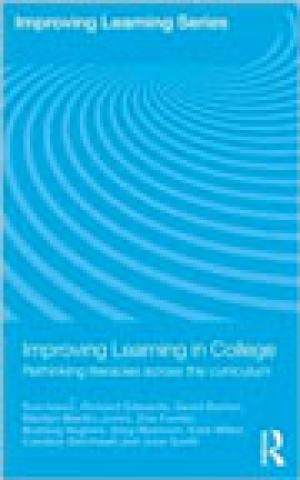
What's the problem with literacy at college? How might everyday literacy be harnessed for educational ends? Based on the first major study of literacy practices in colleges in the UK, this book explores the reading and writing associated with learning subjects across the college curriculum. It investigates literacy practices in which students engage outside of college, and teaching and learning strategies through which these can help support the curriculum. With insightful analyses of innovative practices, it considers ways of changing teaching practices to enable students to draw upon their full potential. Recent research work has challenged the myth of individual student deficit, arguing cogently that people have ‘funds of knowledge’ from diverse and vibrant cultural roots, and that these have been misguidedly disqualified by the education system. It has claimed that different ‘ways with words’ can provide valuable resources for learning. However, the empirical exploration of this claim has lagged far behind the theoretical debate. Improving Learning in College resolves this by showing the integrity and richness of the literacy practices of a significant population, not previously the focus of such research: those who take vocational and academic college courses in colleges. It addresses an issue which has not until now been developed within this research tradition: that of how these practices can not only be valued and validated, but mobilised and harnessed to enhance learning in educational settings. This book will interest all teachers, teacher-educators and researchers concerned with post-compulsory education and vocational education in compulsory schooling. (From the Publisher)
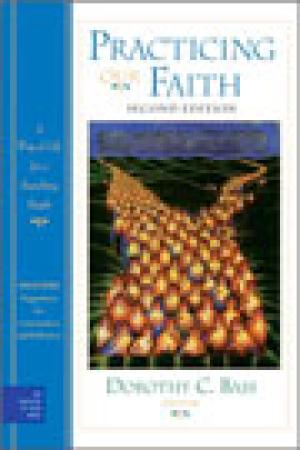
An updated edition of the down-to-earth resource that offers twelve practices to make Christian faith a way of life Many Christians are looking for ways to deepen their relationship with God by practicing their faith in everyday life. This best-selling guide helps take belief out of the realm of theory and shows how to live it out in a series of twelve central practices such as hospitality, forgiveness, healing, testimony, and keeping Sabbath. Designed to work across a wide range of Christian laypeople, leaders, denominations, and study groups, this is the second edition of the book that Theology called "... a stimulating contribution to the work of making explicit the connection between what Christians do and what they believe." • Contains information on the practices discussed in the book and shows how they relate to and intersect with prayer, worship, and Bible study • Offers a guide for conversation, learning, and growth at the back of the book • This updated and expanded new edition includes a new introduction and two additional chapters that describes new insights into and experiences with the "practicing our faith" approach The book includes a variety of prominent contributors, who draw on their rich shared experience as believers, theologians, ethicists, and educators. (From the Publisher)
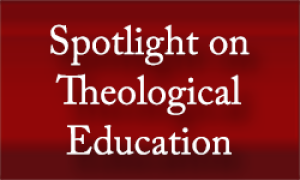
Journal Issue. Full text is available online.
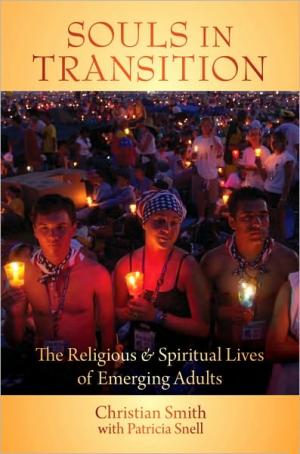
How important is religion for young people in America today? What are the major influences on their developing spiritual lives? How do their religious beliefs and practices change as young people enter into adulthood? Christian Smith's Souls in Transition explores these questions and many others as it tells the definitive story of the religious and spiritual lives of emerging adults, ages 18 to 24, in the U.S. today. This is the much-anticipated follow-up study to the landmark book, Soul Searching: The Religious and Spiritual Lives of American Teenagers. Based on candid interviews with thousands of young people tracked over a five-year period, Souls in Transition reveals how the religious practices of the teenagers portrayed in Soul Searching have been strengthened, challenged, and often changed as they have moved into adulthood. The book vividly describes as well the broader cultural world of today's emerging adults, how that culture shapes their religious outlooks, and what the consequences are for religious faith and practice in America more generally. Some of Smith's findings are surprising. Parents turn out to be the single most important influence on the religious outcomes in the lives of young adults. On the other hand, teenage participation in evangelization missions and youth groups does not predict a high level of religiosity just a few years later. Moreover, the common wisdom that religiosity declines sharply during the young adult years is shown to be greatly exaggerated. Painstakingly researched and filled with remarkable findings, Souls in Transition will be essential reading for youth ministers, pastors, parents, teachers and students at church-relatedschools, and anyone who wishes to know how religious practice is affected by the transition into adulthood in America today. (From the Publisher)
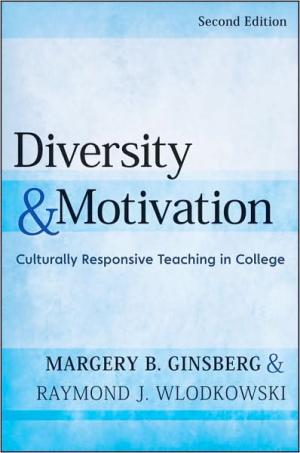
Praise for the Second Edition of Diversity and Motivation "Since the first publication of Diversity and Motivation in 1995, we have consistently used this text and its philosophy in our faculty development at Valencia Community College. I am delighted to see that this new edition focuses on college teaching. Ginsberg and Wlodkowski's approach to the diverse challenges of student motivation is authentic and transforming, and faculty respond!" —Ann E. Puyana, assistant vice president for academic affairs, Valencia Community College "There is a great need for deeper understanding and conceptualization of student motivation across diverse groups to change the consciousness of educators and, ultimately, society. For those of us who teach, and face that need daily, this work illuminates and inspires." —Ed Taylor, vice provost and dean, Undergraduate Academic Affairs, University of Washington? "No one knows more about creating intrinsically motivating classroom environments in diverse settings than Margery Ginsberg and Raymond Wlodkowski. Every educator who wants to engage students fully for success should read this book!" —Beverly Daniel Tatum, president, Spelman College (From the Publisher)
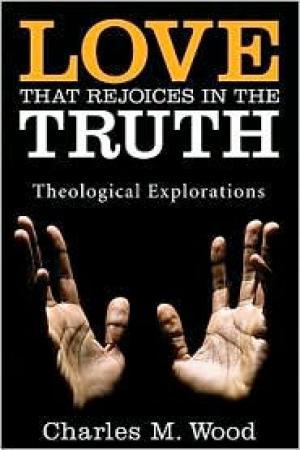
Love, says the apostle Paul, "does not rejoice over injustice, but rejoices in the truth" (1 Corinthians 13:6). The theological explorations undertaken here all deal in one way or another with the liberating promise and the perplexing problem of truth in Christian life and witness, and with the ways that Christian theology and theological education in their various modes struggle both to seek the truth and to foster the aptitude to honor it. (From the Publisher)
White and African-American students in the American South are able to meet and learn from Confucianism on its own terms much more readily than their peers elsewhere. This is because of their tendency to respect authority, participate in intergenerational ritual performances (especially those concerned with manners, meals, and mortuary practices), and judge the present in terms of the past (especially the U.S. Civil War). This is true despite the incompatibility that many southern students sense between Confucianism and their own religious doctrines. Instead, southern students' grasp of Confucianism rests on the grounds of lived religious experience. When southern students learn to see in Confucianism a set of beliefs, practices, and experiences that, in some ways, mirror their own, they are empowered to identify the tradition as "religious" in a way that renders "religion" a descriptive category of comparison rather than a limiting category of unique identity.
Journal Issue.